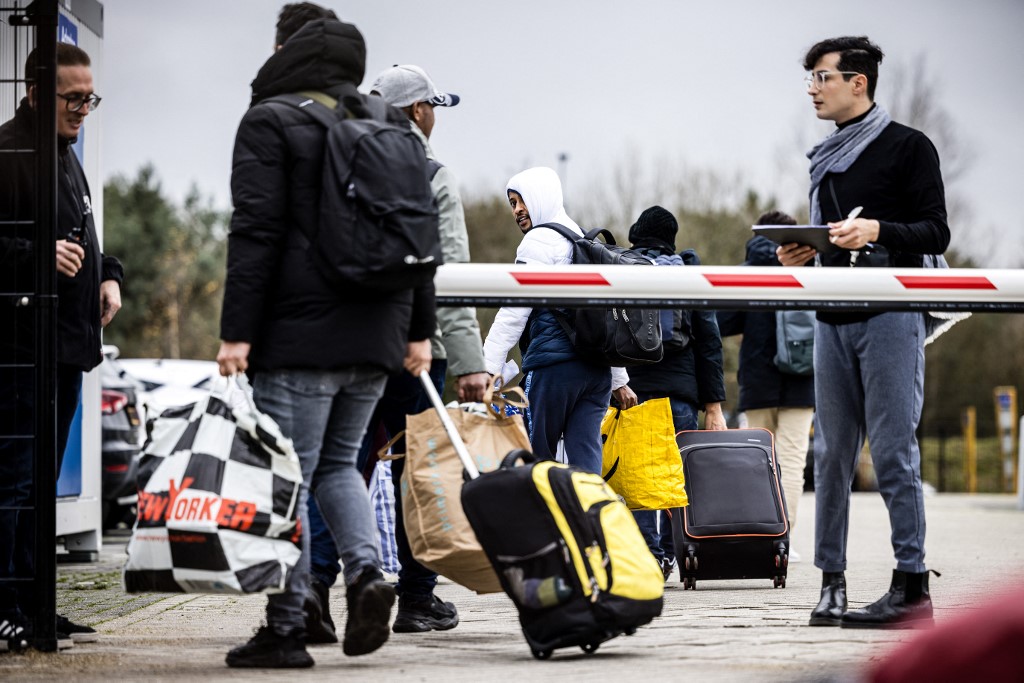
The Netherlands Tightens Asylum Rules
The Dutch parliament is drastically tightening asylum laws: the length of stay will be reduced, family reunification will be strictly limited, and anyone residing in the country illegally or aiding migrants can expect to face penalties in the future. Meanwhile, Denmark, which has taken over the rotating presidency of the European Union, has also made the tightening of migration policy a priority in its programme.
The Dutch parliament has approved significant changes to its asylum legislation. As a result, obtaining refugee status and subsequently bringing family members into the Netherlands will become much more difficult. Staying in the country without valid documents, or assisting undocumented refugees, will also become punishable.
Lawyers, government advisors, asylum authorities, and refugee organisations warned before the adoption and implementation of these laws that the measures are legally questionable and practically unenforceable.
The initiator of the tightening was Geert Wilders, participating in government for the first time with his Party for Freedom (PVV), aiming to introduce „the strictest asylum law of all time”.
However, the governing coalition collapsed in June over disputes concerning asylum policy. New elections are planned for the end of October.
Wilders’s party now has the largest faction in the lower house of parliament and voted in favour of the draft laws alongside former coalition partners. The legislative package is expected to be debated in the upper house of parliament this autumn.
Die neue Ratspräsidentschaft – seit 1. Juli Dänemark – will illegale Einreisen drastisch senken, sichere Herkunftsländer ausweiten und Asylverfahren ins Ausland verlagern. https://t.co/In10xey2hR
— exxpress (@exxpressat) July 4, 2025
Influx of Migrants Could Stop
In the future, the Netherlands will recognise two types of refugee status: refugees from war or disaster-affected regions and individuals persecuted for personal reasons, such as ethnic background.
Residence permits will be shortened from five years to three, and family reunification will be drastically restricted.
Around 12 per cent of migrants arriving in the Netherlands each year are refugees. In 2024, approximately 32 thousand refugees arrived, along with 10 thousand family members. However, in the first three months of 2025, these numbers dropped by 50 per cent. Similar trends can be observed in other European countries.
Danish EU Presidency: Curbing Migration as a Key Objective
Denmark, which took over the EU Council presidency for six months from 1 July, has prioritised „new and effective approaches to combating illegal migration”.
The number of illegal migrants entering Europe must be reduced, and the EU’s external borders must be secured. Illegal migration must not endanger European cohesion,
says the Danish presidency programme. It further states that „the Danish presidency will work on new and innovative solutions to control illegal migration and reduce the number of arrivals into the EU.”
The EU’s success in preventing irregular migration to Europe largely depends on constructive cooperation with partner countries along migration routes,
the Danish programme says. It also expresses commitment to classifying more countries, including some controversial ones like Syria and Afghanistan, as safe countries of return.
Das Parlament verschärft das Asylrecht drastisch: Aufenthalt wird verkürzt, Familiennachzug stark begrenzt – wer illegal im Land ist oder Migranten unterstützt, muss künftig mit Strafen rechnen. https://t.co/ij8QuCWFIy
— exxpress (@exxpressat) July 4, 2025
Migration experts in Brussels are preparing for significant tightening of EU migration policy. Jacob Funk Kirkegaard, lead analyst at the Brussels-based Bruegel economic think tank, stated that „less migration” is now one of the top priorities in most EU countries. Germany, Austria, and Italy are clearly in favour of stricter controls.
„The only major country that opposes this move is Spain,”
Kirkegaard said when asked about divergences among EU member states.
However, Spain’s prime minister is under significant political pressure at home, making it unlikely he will actively oppose these developments. EU member states are increasingly calling for a migration policy focused on employment opportunities for immigrants, while also limiting family reunification.

